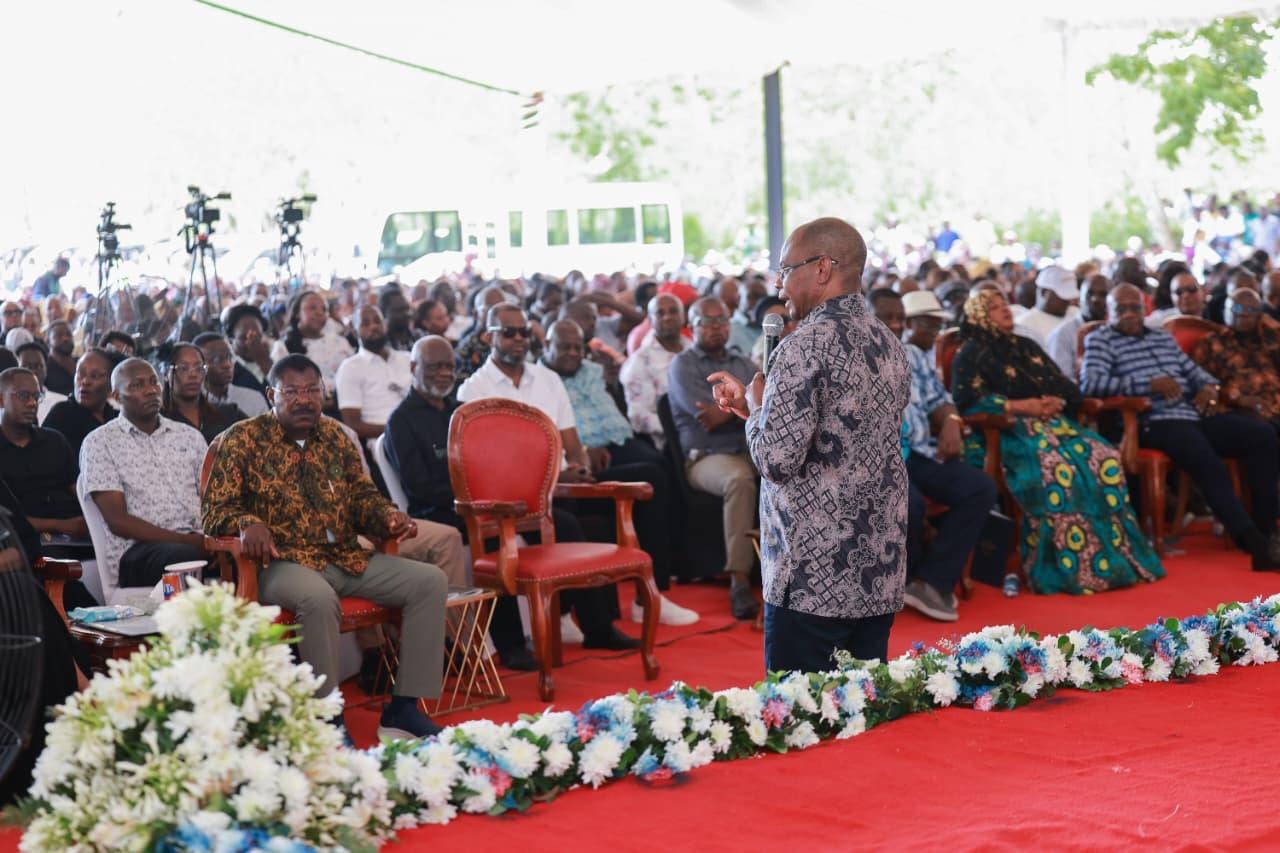Kenya launches Sh300m GIS initiative to transform land management

The implementation of the GIS system aims to bolster food and nutrition security, improve livelihoods, and promote sustainable development in Kenya, aligning with the nation's Vision 2030.
Chairman of the Council of Governors Ahmed Abdullahi has unveiled a Sh300 million investment in Geographic Information System (GIS) equipment, aimed at enhancing land governance across the country.
The initiative includes not only the GIS equipment but also comprehensive implementation guidelines and training manuals, ensuring that county representatives are well-prepared to utilize these tools effectively.
More To Read
- Senate committee approves Bill protecting governors from early impeachment
- Governors sound alarm as 934 newborns die amid funding row in health sector
- Counties decry handling of hospitals under SHA, accuse Health Ministry of overreach
- Tharaka Nithi Governor Muthomi Njuki named new CoG Vice Chair replacing Mutahi Kahiga
- Senate probe uncovers unpaid loans by ex-governors, county officials
- KMPDU, Kiambu County reach agreement ending five-month doctors’ strike
Speaking during the launch, Abdullahi explained the importance of embracing the opportunities presented by GIS technology, urging county leaders to leverage these resources to foster knowledge-sharing and collaborative problem-solving.
"As we launch this project today, I urge all of you to embrace the opportunities that GIS presents. Let us use this to enhance our capabilities to share knowledge and collaborate on solutions that will benefit our communities for generations to come," he stated.
The launch took place on Thursday in partnership with the European Union (EU) and the Food and Agriculture Organisation (FAO).
This milestone was solidified through a signed agreement involving county governments, the EU, and the FAO.
Following the successful initial phase, which saw nine counties implement the GIS system, an additional 30 counties adopted the technology on October 31, 2024.
Today, led by Chairperson @HEAhmedJiir, the Council of Governors launched the County GIS implementation guidelines and training manual in partnership with the @EUinKenya and @FAOKenya. pic.twitter.com/cs060dXQbK
— Council of Governors (@KenyaGovernors) October 31, 2024
Now, all 47 counties are equipped with functional GIS laboratories, positioning them to improve land management and urban planning significantly.
"By harnessing the power of GIS, we can better plan our infrastructure to improve service delivery and expound more effectively to the needs of our communities. The digital lands and governance programme recollects our commitment to modernising land governance and enhancing transparency and accountability in land management," Ahmed added.
This programme is designed not only to enhance technological capabilities but also to provide extensive training for county officers.
This training will ensure that officials are equipped with the necessary skills to make data-driven decisions, monitor land use changes, resolve disputes, and engage in effective urban planning.
"We need to train our county officers that are tasked with providing and inputting this data into the system so that the data can be as accurate as it can get," Ahmed added.
The implementation of the GIS system aims to bolster food and nutrition security, improve livelihoods, and promote sustainable development in Kenya, aligning with the nation's Vision 2030.
Furthermore, enhanced access to data will lead to improved conflict resolution mechanisms related to land and natural resources, paving the way for more equitable land management practices.
Top Stories Today














































